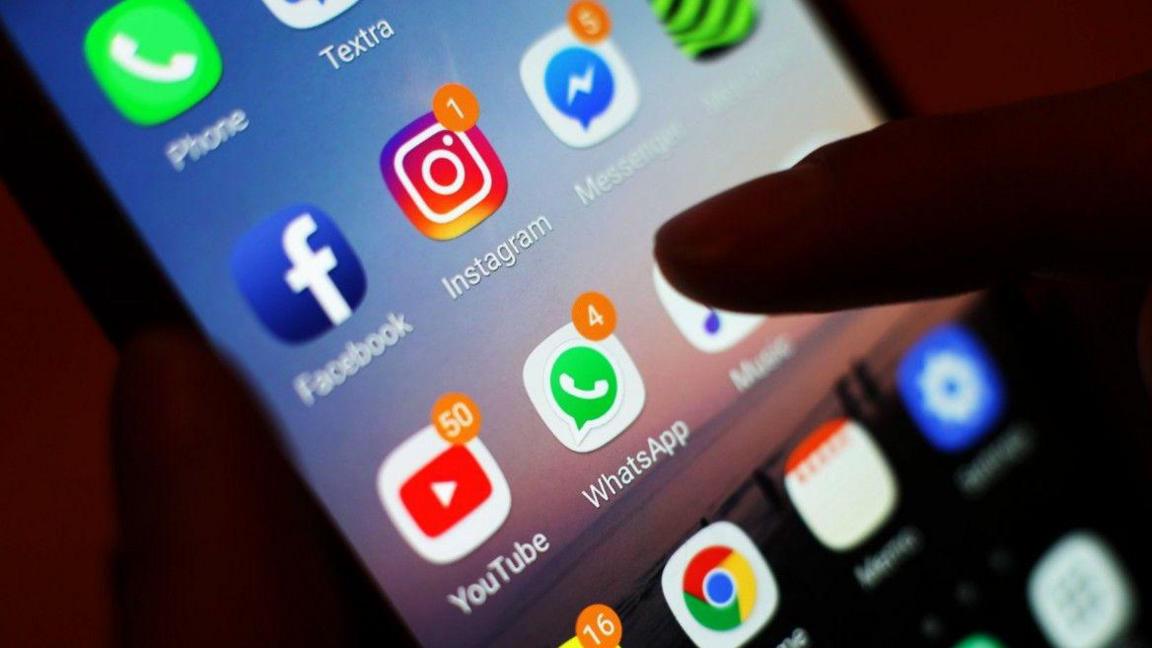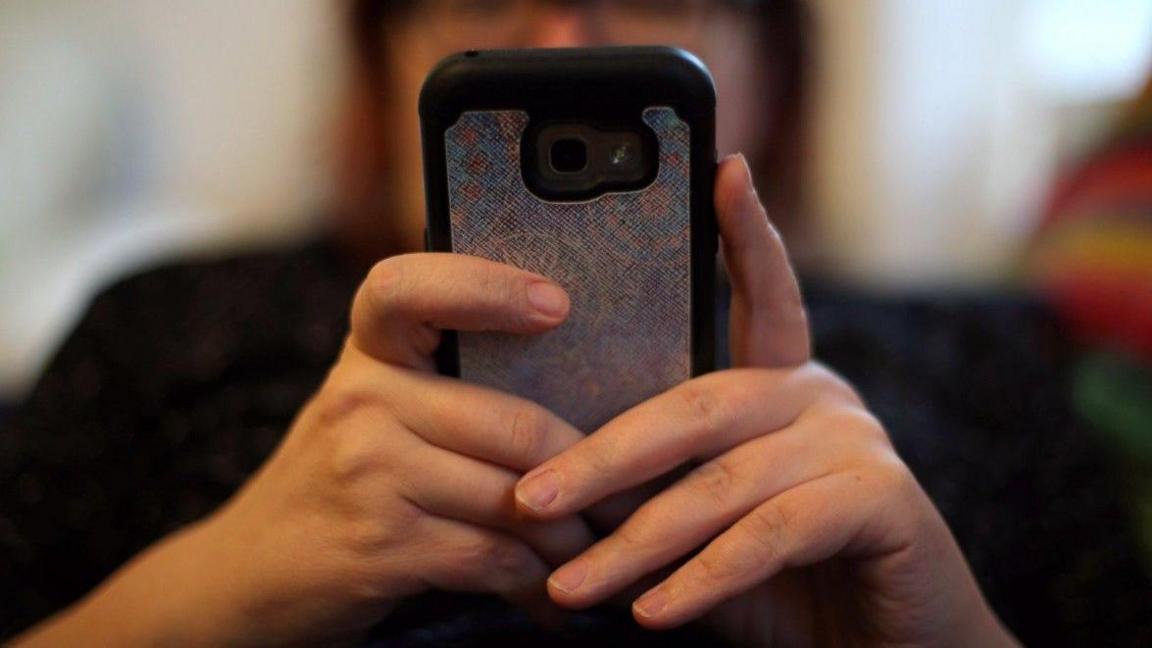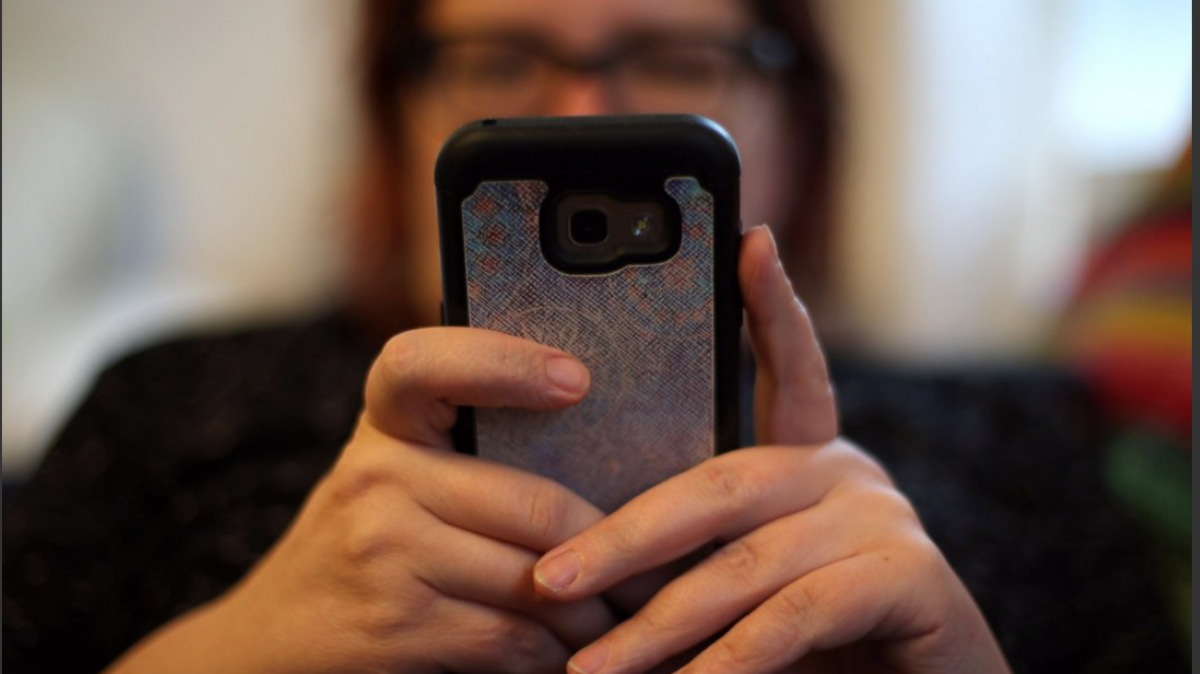What is SIM-swap fraud and what are the signs?

The fraud involves criminals gaining control of a victim's mobile phone number
- Published
A growing number of cyber-criminals are collecting personal information shared on social media to hijack people's mobile phone numbers, police have said.
Fraudsters then steal bank security codes as well as gain access to online accounts to empty savings and rack up debts.
Reports of so-called SIM-swapping fraud doubled nationally in both 2023 and 2024, with nearly 3,000 incidents reported last year, according to Action Fraud.
Det Sgt Danny Gavin, from Merseyside Police's cybercrime unit, said many victims only discovered they had been targeted after significant financial damage had occurred.
'Security codes intercepted'
"The fraud can have devastating consequences, with criminals able to systematically take over multiple online accounts, order expensive goods, make money transfers and steal personal information," he said.
SIM-swapping fraud occurs when criminals gain control of a victim's mobile phone number by tricking the network provider into transferring it to a device controlled by the fraudster.
This enables criminals to intercept security codes sent via text message and bypass two-factor authentication on banking apps, social media accounts, and email.
Last month, a 45-year-old man was arrested in Salford on suspicion of fraud by false representation after a local businessman allegedly had £250,000 stolen from his accounts.

Merseyside Police is warning residents about a surge in sim-swapping fraud
"People rely on their mobile phones as part of modern life, but most don't realise how dependent they are on keeping their mobile phone number safe," said Det Sgt Gavin.
"In the past, it wasn't something that people generally needed to think about, but now they do – your phone number has become a bit like a key to your entire digital identity."
The fraud typically involves criminals researching potential victims through social media and public records, or impersonating the mobile phone provider to gather personal details about the victim.
They will either impersonate the victim when contacting mobile network providers or hack into their target's online mobile phone account, claiming they need a SIM replacement due to a lost or damaged device.
Det Sgt Gavin added: "These are stay-at-home criminals who are digitally savvy and understand that most people are unaware of how easily their mobile number can be hijacked and used to bypass security on financial and personal accounts."
Warning signs of SIM swapping include sudden loss of mobile service, unexpected text messages or emails about account changes, inability to access accounts or unauthorised transactions.
Merseyside Police said members of the public could "protect themselves by following good online security practices – taking simple steps to keep accounts safe and secure".
This includes using strong, unique passwords for every account and regularly updating mobile device software to protect against known security vulnerabilities.
Get in touch
Tell us which stories we should cover on Merseyside
Listen to the best of BBC Radio Merseyside on Sounds and follow BBC Merseyside on Facebook, external, X, external, and Instagram, external. You can also send story ideas via Whatsapp to 0808 100 2230.
Related topics
- Published9 August
